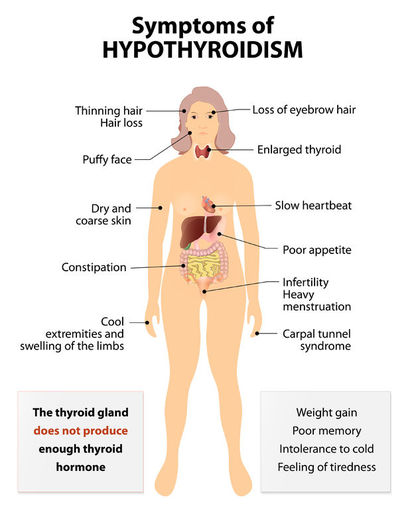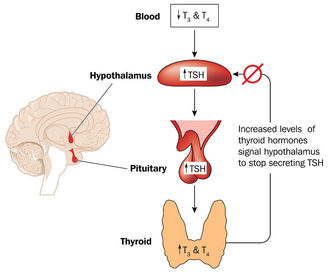 If you’re wandering down any typical grocery store, you will usually come across one isle or two promising “freedom” from some of the typical things most people eat: gluten-free, dairy-free, egg-free, soy-free, and the list goes on. You may have wondered if those foods are healthier, and if you should also be filling your grocery cart in that isle. Food sensitivities and allergies are on the rise in North America. It’s hard to plan a kids’ party without someone having some dietary restrictions. So, what’s the difference between food sensitivities, intolerances, and allergies? Food Allergies Most people with food allergies found out the hard way. They ate some peanuts and had difficulty breathing, or ate some strawberries and broke out in hives. These reactions are usually severe, and are mediated by a type of antibody called IgE (antibodies are produced in the body and attach to specific protein sequences that they recognize). If you went to an allergist and got pricks in your forearms, you were most likely tested for IgE reactions. Symptoms of food allergies usually show up fast, usually starting within 15min of consuming the food, and can be quite severe. They are the type of food reaction that is usually immediate, and are associated with anaphylaxis. If you have a food allergy, you have to be very careful about avoiding even trace amounts of the food in question. Food Sensitivities Food sensitivities are typically harder to pinpoint than food allergies, so many people go undiagnosed for years. They are delayed reactions to food mediated by a different type of antibody, IgG. Symptoms occur most commonly within the first day of eating a food, but can occur up to 3 days after. The symptoms of a food sensitivity tend to be more subtle than a food allergy. They can include: -digestive issues (bloating, gas, diarrhea, constipation, etc.) -foggy thinking -feeling like food “just sits there” and doesn’t digest well -migraine headaches -fatigue -difficulty losing weight -skin issues (acne, eczema, psoriasis) -behavioural issues in children Food sensitivities can be identified either through an elimination diet, or through IgG food sensitivity testing. Many patients opt for IgG food sensitivity testing to get a more objective starting point of which foods to start eliminating. This involves a simple blood test that will look at the level of IgG produced with respect to 120-200 foods. However, food sensitivity testing is still controversial. It is not 100% accurate, must be interpreted in the light of what is going on with the patient, and possible cross-reactions (i.e. shellfish IgG can show up high in someone with a dust allergy because the body recognizes a similarity between them). False positives can occur if the patient has a condition referred to as leaky gut syndrome (where the bowels are hyper-permeable and allow too many undigested foods through). False negatives can occur if you have not been eating a certain food, so it is better to do the testing before you start eliminating foods from your diet. In research studies, IgG-based elimination diets have been found to help with: -both migraines and irritable bowel (Aydinlar et al., 2013) -IBS (Drisko et al., 2006; Atkinson et al., 2004) -Crohn’s disease (Bentz et al., 2010) Despite the lack of conclusive research, I have found the test to be very clinically relevant in practice: most of my patients with the relevant symptoms improve quite dramatically when we remove their food sensitivities from their diet. Food Intolerances Reading through articles can be confusing, since the term “food sensitivities” and “food intolerances” is often used interchangeably. However, food intolerances are non immune-mediated reactions to food (no antibodies are involved). Typically, the body will lack something which will make it intolerant to a food. A common food intolerance is lactose intolerance, where one cannot tolerate lactose-containing dairy products because he/she lacks the lactase enzyme in the digestive tract necessary to break down lactose. With lactose intolerance, symptoms usually occur within 30min of consuming lactose, leading to stomach cramps, abdominal pain, and diarrhea. An elimination diet can help identify both food sensitivities and food intolerances. It may take some further testing after that to identify if, for example, your reaction to dairy is due to a sensitivity or an intolerance. What To Do About Them Once you identify which foods are a problem for you, there are healthy and not-so-healthy ways to eliminate them from your diet. Many of the specialty foods free of common allergens/sensitivities are highly processed, and contain fillers, emulsifiers, and sugars to make the texture or flavour more similar to their regular counterparts. Your best bet is to stick with whole foods that are minimally processed most of the time, and only have the processed ones as an exceptional treat. You may also need additional supplements to help heal your gut barrier so that you can potentially tolerate your sensitivities more in the future. Do you think you may have a reaction to a food you are consuming? If you have any questions or would like to get started on an elimination diet or IgG food sensitivity testing, please contact us and we'll help you out! References
Atkinson W1, Sheldon TA, Shaath N, Whorwell PJ.Gut. Food elimination based on IgG antibodies in irritable bowel syndrome: a randomised controlled trial. Gut. 2004 Oct;53(10):1459-64. Aydinlar EI1, Dikmen PY, Tiftikci A, Saruc M, Aksu M, Gunsoy HG, Tozun N. IgG-based elimination diet in migraine plus irritable bowel syndrome. Headache. 2013 Mar;53(3):514-25. Bentz S1, Hausmann M, Piberger H, Kellermeier S, Paul S, Held L, Falk W, Obermeier F, Fried M, Schölmerich J, Rogler G Clinical relevance of IgG antibodies against food antigens in Crohn's disease: a double-blind cross-over diet intervention study. Digestion. 2010;81(4):252-64. Drisko J1, Bischoff B, Hall M, McCallum R. Treating irritable bowel syndrome with a food elimination diet followed by food challenge and probiotics. J Am Coll Nutr. 2006 Dec;25(6):514-22. Images from 123RF.com
0 Comments
 Many people come to me at my practice because they have difficulty losing weight and feel that their metabolism is slowing down. Your master gland for controlling metabolism in the body is your thyroid gland, a butterfly-shaped gland at the base of your neck. It is estimated that thyroid disorders affect 0.5-0.8% of the population, but those estimates may be on the low side. Naturopathic doctors such as myself who have taken additional training are now able to prescribe natural desiccated thyroid to help restore optimal thyroid function. Many people have been told that they have normal thyroid function after an initial screening test (TSH), but on further testing, one or both of their thyroid hormones are off. So, I usually screen my patients who experience several low thyroid symptoms with a full thyroid panel to make sure that their thyroid is functioning optimally. Symptoms of Hypothyroidism What are low thyroid symptoms? If you think about it, if your metabolism is slowing down, you will see repercussions throughout the body. Digestion will slow down, thinking will slow down, and the pounds will start adding up. Here is a list of common signs and symptoms of hypothyroidism: -Dry and coarse skin -Difficulty tolerating cold temperatures -Sluggish digestion and constipation -Slow thinking -Weight gain -Puffiness (you may notice puffiness in the face) -Slow heart rate -Delayed relaxation of ankle reflexes (this is tested during a physical exam) Having several of these symptoms does not necessarily mean that you have a thyroid issue. Many of these symptoms are non-specific, so they may be due to many other imbalances in the body. That’s why testing is so important. Testing for Hypothyroidism I usually do a full thyroid screen when I test for thyroid disorders, which includes: -TSH -fT4 -fT3 -TPO antibodies If you thought you had a thyroid issue or your doctor suspected it, you’ve probably had your TSH (thyroid stimulating hormone) tested. This hormone is secreted by the pituitary gland (at the base of your brain) and acts as a manager to tell the thyroid what to do. If the thyroid isn’t producing enough thyroid hormones, TSH will typically be high, as the manager is working hard, trying to get the thyroid to do its job. However, there is a huge “normal” range for TSH. If you’re within the normal range but still have symptoms, your levels may be sub-optimal. As a naturopathic doctor, I’m checking to see if you’re actually within the optimal range, which is a smaller sub-section of the normal range.
The next hormone to look at is your free T4 levels. This is a pro-hormone produced by the thyroid which needs to be converted to free T3. It’s the free T3 that is actually active within the tissues, speeding up your metabolism. If you’ve been taking Synthroid or its generic form, levothyroxine, you are getting synthetic T4. This T4 needs to be converted into free T3. However, many people take Synthroid, regain normal TSH and fT4 levels, but still have low thyroid symptoms because they are not converting the fT4 into fT3 properly. That conversion process depends on many things, including stress levels, heavy metal exposure, and minerals such as selenium and zinc. TPO antibodies are useful for screening for Hashimoto’s thyroiditis, an auto-immune condition where the body misguidedly attacks its own thyroid tissue, leading to hypothyroid symptoms. If you have this, it makes a big difference in how you will be treated from a naturopathic perspective, because our treatments will not only be aimed at getting thyroid function back, but also at decreasing the auto-immune response using diet, lifestyle, and supplementation. What Affects Conversion of T4 into T3? The conversion of T4 (inactive) into T3 (active) requires many factors to be in place for it to work optimally. The deiodinase enzyme is the enzyme through which this reaction takes place. This enzyme can be slowed down by (Hui, 2016): -Lack of progesterone (common as women enter perimenopause) -Low or high cortisol levels -Toxins and heavy metals such as mercury -Inadequate selenium, zinc, and other trace minerals and vitamins -Stress or many chronic diseases Why Desiccated Thyroid? Desiccated thyroid is not for everyone affected with hypothyroidism. However, now that you have a basic knowledge of how the thyroid works, you’ll understand why someone might require desiccated thyroid rather than Synthroid (only T4). Desiccated thyroid in Canada, called Erfa, is a standardized natural extract from a porcine source. Since it contains both T4 and T3, it can be especially useful for those who convert T4 poorly to T3. As well, since it is an extract of the whole thyroid gland, it also contains other nutrients that act as building blocks for the thyroid to function properly. In a randomized, double blind, crossover trial, when patients spent 12 weeks on Synthroid followed by 12 weeks on desiccated thyroid, or the other way around, 43% of patients preferred desiccated thyroid over Synthroid while only 19% preferred Synthroid (Hoang et al., 2013). Those on desiccated thyroid also tended to lose more weight. As with other drugs, patients on desiccated thyroid must be closely monitored to make sure that they are on an optimal dose for them which does not cause any side-effects. Is Desiccated Thyroid for You? If you would want to find out if desiccated thyroid is a good option for you, book an appointment at either of my locations, and I would be happy to help you out! We will do a thorough assessment and see if you would be a good candidate, or if there are other avenues that should be explored first (or in conjunction). If you think your health issues may be related to your thyroid, just give us a call! References Hoang TD et al. Desiccated thyroid extract compared with levothyroxine in the treatment of hypothyroidism: A randomized, double-blind, crossover study. J Clin Endo-crinol Metab 2013;98:1982-90. Epub March 28, 2013. Hui F. Clinical Pearls in Assessing & Treating The Thyroid. Evidence Based Nutrition Module 3: Bio-identical Hormones Conference. February 2016. Images from 123RF.com |
AuthorDr. Tamar Ferreira is a Naturopathic Doctor in Brampton, Ontario. Her areas of focus include digestive health, hormone balance, and skin conditions. Topics
All
Archives
May 2020
|
118 Queen St. W., Suite 205
Brampton, ON
L6X 1A5
905-451-3963





 RSS Feed
RSS Feed